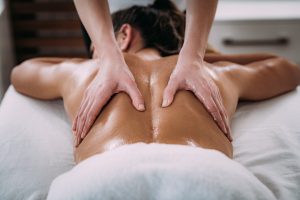 When your feet fall asleep, you might not think much of it. It may be annoying, but it is certainly not concerning.
When your feet fall asleep, you might not think much of it. It may be annoying, but it is certainly not concerning.
It also might be the only time you really think about circulation.
Advertisement
Circulation is vital to your overall health. Your body is constantly circulating fluids throughout your body. Five quarts of blood move through your veins every minute to deliver oxygen and nutrients to your cells, all while carrying away waste products.
Poor circulation impedes this process. When blood isn’t flowing efficiently, it can lead to temporary symptoms like cold hands and feet or cause those extremities to fall asleep. Often, a little movement is all that’s needed to remedy those issues.
But symptoms of poor circulation can become more severe. Swelling, varicose veins, fluid retention, bloating, and low energy can all signify that blood isn’t moving through veins efficiently.
Exercise and hydration are two of the most useful ways to improve vein health and circulation. But there are other measures you can take to restore blood flow and limit the risk of circulatory complications.
Massage: Sometimes, all you need is a little rub to get the blood flowing. A massage may speed up blood flow by applying pressure to the congested area, with the subsequent release resulting in more efficient circulation.
Advertisement
Green Tea: Two or three cups of antioxidant-rich green tea each day may help relax and widen blood vessels to enhance circulation.
Dry Brush: Dry brushing skin each day before showering may also encourage healthy veins and promote circulation. Start down at your feet and rub upwards, in small circles, to your heart level.
Along with more movement and a heart-healthy diet, these measures can help build vein health and a functional circulatory system. Putting a little time into thinking about your veins each day can go a long way.
